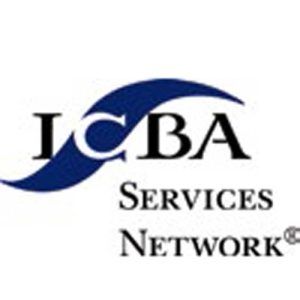Bankers and attorneys say things generally work best when the general counsel has unfettered access to the C-suite and is actively involved in multiple matters across the banking organization.
Having general counsel is critical for community banks, but what’s the right balance between in‑house and external counsel? Community bankers and legal experts weigh in on how to create the right strategy for your bank.
General counsel is a must-have for any business, and community banks are no exception. But some community banks downplay the need, which can be a tactical and costly mistake.
To be sure, larger community banks may derive additional benefits from having in-house counsel, but it’s something all community banks should also consider, according to bankers and attorneys who work within or alongside these institutions. This is especially true for community banks in growth mode or those that are trying to expand into new service lines, states or markets, as well as for those that have identified regulatory or compliance gaps.
“It’s something I would consider and carefully evaluate. I think it makes more sense than sometimes people appreciate,” says Robert Messer, Chief Financial Officer and Chief Risk Officer of $5.5 billion asset American National Bank of Texas in Terrell, Texas, which has had an inside general counsel for decades.
Here are four considerations for community banks when weighing these matters:
1. Analyze the potential cost benefits of in‑house general counsel.
Community banks could spend hundreds of thousands of dollars per year on legal fees for outside counsel, depending on the services they need and the attorneys they work with.
“In addition to carefully tracking their overall legal spend, community banks should delve into what they are spending their legal dollars on,” said Shelli Clarkston, an associate attorney at law firm Lathrop GPM in Kansas City, MO. She previously served as in-house general counsel for a financial services holding company, its three community banks and two insurance companies, and now represents banks as outside counsel.
“By delineating whether the money is going mostly to collections, compliance-related matters, litigation, contract work or something else, the community bank can make more informed decisions about the expertise they might want to bring in-house and what might still be needed on a contractual or retainer basis,” Clarkston says.
“The question then becomes: Can the community bank find someone in-house to lower these costs? If a $250 million-asset community bank is spending $1 million a year in outside legal fees, even if all the in-house attorney does is collections, it would still save the bank money,” Clarkston says.
“Ideally, a community bank should review its legal spending as part of its annual strategic review or any time the bank is considering offering a substantial new product or service,” says Chris Mastrangelo, a former Bank Examiner and the Chief Compliance Officer at $600 million asset Grasshopper Bank in New York City.
2. Investigate other potential benefits.
Aside from monetary savings, there can be other advantages to in‑house counsel.
“There’s value in having the ability to walk down the hallway when a loan officer or someone in the compliance department has questions,” says Michelle Terry, General Counsel and Senior Vice President at $1 billion-asset First Arkansas Bank & Trust in Jacksonville, Ark.
Indeed, banks with in-house counsel also tend to be more proactive when it comes to potential legal matters. “If you have to call outside counsel and get billed in 15-minute increments, you might not call,” Messer says.
Aaron M. Kaslow, Executive Vice President, Chief Administrative Officer and General Counsel for $14 billion asset Sandy Spring Bank in Olney, Md., agrees. “When you’re not paying by the hour, you feel more comfortable using your attorneys more and getting them involved earlier in the process,” he says.
“The internal legal team at Sandy Spring Bank works closely with the compliance department on issues that require interpretation,” Kaslow says. “The legal team, which consists of three lawyers, two paralegals and an assistant corporate secretary, also reviews marketing materials and fields a significant number of questions from the bank’s retail group. In-house counsel can also be invaluable when it comes to contract review,” he says, “especially given that banks today tend to partner with numerous vendors.”
“You might do okay on the business terms, but there are legal issues that need to be addressed regarding cybersecurity and privacy, for example,” Kaslow says.
3. Partner more effectively with outside counsel.
Some banks make the mistake of thinking that they can hire an in-house counsel and eliminate all outside fees, but that’s an unlikely scenario.
“You’re generally not going to cover everything with one jack-of-all-trades person,” Mastrangelo says.
“In fact, relying on a single in-house attorney could put the lawyer and the bank in a precarious position,” says Asnardo Garro, a partner in the corporate and financial services practice at Avila Rodriguez Hernandez Mena & Garro LLP, a Coral Gables, Fla., law firm that works with financial institutions.
“They’ll get swamped,” he says. “At most community banks, there’s so much legal need that it’s too much for one person to handle.” Garro also adds that if a bank has only one attorney in-house, it’s important to provide them with internal and external resources for support.
Bankers and attorneys say there’s a role for both, with in-house general counsel helping to streamline a community bank’s legal functions and appropriately divide tasks internally and externally. “Having an in-house attorney work with outside counsel on specialized services such as litigation or employment matters can be more time- and cost-efficient than having a layperson “muddle through” complicated legal issues,” Messer says.
“An in-house attorney is also in a better position than a layperson to know what’s reasonable in terms of outside legal fees and the time being spent on various legal projects,” says Paul Saltzman, Chief Legal Officer at $11.2 billion-asset EagleBank in Bethesda, MD.
4. Think big picture.
“A community bank needs to carefully consider its growth plans. If it is growing, having in-house counsel could make even more sense,” says Anne Balcer, Senior Executive Vice President and Chief of Government Relations and Public Policy at ICBA. “You would rather have someone come in early on and work collaboratively as part of your growth and management team to position you to be successful and avoid some of the pitfalls you can run into by growing quickly,” she says.
“What’s more, a general counsel role doesn’t have to be narrowly tailored,” Saltzman says. A bank, for instance, might be able to organize compliance and other administrative operations under the supervision of a chief legal officer. General counsel can be involved in business planning, corporate governance, product planning and other areas that reduce legal risk — before it manifests itself in a customer complaint or regulatory action.
“In-house counsel needs to be looked at as people who prevent fires,” Saltzman says, “not just people who put out fires.”
Finding Your Bank’s Best Legal Team
No one size fits all when it comes to how community banks organize their legal departments. For example, Michelle Terry, General Counsel and Senior Vice President at $1 billion asset First Arkansas Bank & Trust in Jacksonville, Ark., reports directly to the CEO, who is also one of the bank’s majority shareholders. By contrast, at American National Bank of Texas in Terrell, Texas, the General Counsel reports to the bank’s chief operating officer and offers advice to the board, even though he doesn’t hold a board seat, says Robert Messer, Chief Financial Officer and Chief Risk Officer.
Meanwhile, Aaron M. Kaslow, Executive Vice President, General Counsel and Secretary, is a member of the executive team at Sandy Spring Bank in Olney, MD.
“I think it’s a really good idea because you want your general counsel to be aware of what’s happening across the bank so the general counsel can be proactive and not just reactive to issues that come up,” he says.
Bankers and attorneys say things generally work best when the general counsel has unfettered access to the C-suite and is actively involved in multiple matters across the banking organization.
“It’s not just a lawyer sitting in-house. That’s probably the biggest mistake banks make,” says Paul Saltzman, Chief Legal Officer at EagleBank in Bethesda, MD, who serves on the executive committee and several management committees. “An outside counsel may tell you whether you can do it; an inside lawyer will tell you whether you should do it.”
This article was originally published in the May 2023 issue of Independent Bankers magazine. Visit www.independentbanker.org to read more.







